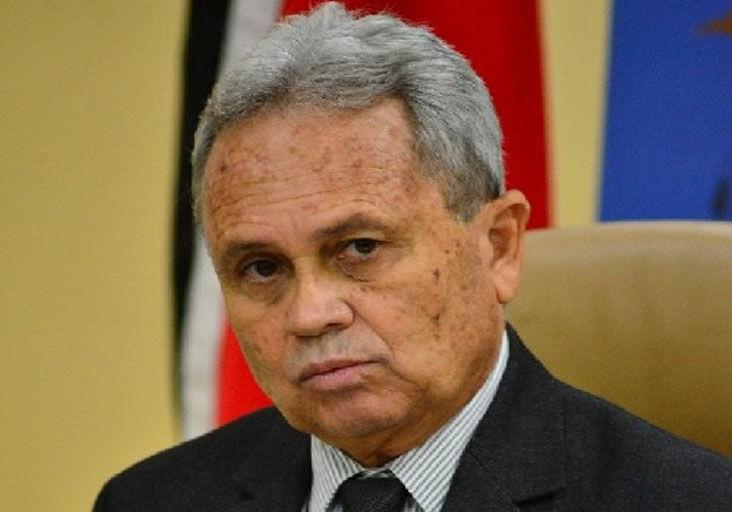Imbert: Need to reduce subsides or face collapse
WHEN he steps up to the podium this afternoon to deliver his seventh budget presentation, Finance Minister Colm Imbert will have a real dilemma: does he continue running the economy with borrowed funds and withdrawals from the Heritage and Stabilisation Fund (HSF) or does he opt, for the first time, to impose fiscal discipline on the population?
At a news conference on June 15, 2021, Imbert signalled that the Government is finally prepared to impose more fiscal discipline, by reducing the subsidies and transfers that account for about half of Trinidad and Tobago’s total expenditure.
He said: “One of the reasons why we have been able to maintain our investment grade rating, even amidst all of this chaos, is that the Government has been doing its own adjustment.
“So that when we came in September 2015, the annual expenditure was in excess of $60 billion. We have that down now to $50 billion, so we have cut annual expenditure by about 20 per cent.
“But we have work to do, because we have to look at the money that is spent by way of subsidies on the supply of water, electricity and fuel.
“Because, even though what some of the economists say is outrageous and ridiculous—when they tell us that we should only spend $35 billion and it does not matter what happens; 50,000 people could get retrenched. That’s is the kind of foolishness that comes out of our university—we as a Government have to keep looking at the deficit between revenue and expenditure because you cannot go on forever spending significantly more than you earn.”
He said: “So we have to look at things like subsidies on fuel, water and electricity and we have to deal with it. Because last year, we had a deficit of $16 billion and this year, I am not sure what it would be, but it may be more than $10 billion. And that money has to be borrowed or withdrawn from the Heritage and Stabilisation Fund. You can’t keep doing that forever as that would be totally irresponsible. So unfortunately, we have to deal with these issues that have been left unattended for so long...”
So the Finance Minister clearly understands that recording six budget deficits in his six presentations is leading the country to a point of debt unsustainability.
Already, the T&T public sector debt outstanding (excluding debt issued for sterilisation purposes) is close to $130 billion, and its debt to GDP ratio is pushing onto 90 per cent.
The minister understands that if he does not start to reduce the subsidies on fuel, water and electricity, as well as introduce the property tax—as he signalled at his June 15 news conference—he is setting the country up for economic collapse.
And a formal debt restructuring arrangement with the much-maligned International Monetary Fund (IMF).
While imposing higher fuel, water and electricity costs and introducing the property tax may be the appropriate economic path to take, the Minister is first and foremost a politician...always with an eye on the next election.
He would have read yesterday’s Sunday Express pre-budget coverage when most of the people interviewed by reporters Camille Hunte and Donstan Bonn complained about the spiralling cost of food and called on him to do something about it.
As a politician, he knows there are many people who hold the Government responsible when the nation’s largest industrial bread maker and one of its largest candy manufacturers increase their prices.
The Minister of Finance would also have read last week’s Monetary Police announcement, in which the Central Bank stated: “On the domestic front, supply-side factors—notably a surge in international commodity prices such as sugar, wheat and vegetable oils; higher shipping costs; transportation delays; and adverse weather conditions—have led to a discernible increase in food prices.
“The latest information from the Central Statistical Office shows that food inflation (year-on-year) rose from 3.2 per cent in January to 4.9 per cent in July 2021. The largest increases were recorded for vegetables, fruits, milk, cheese and eggs. Core inflation (which excludes food items) remained relatively contained at 1.6 per cent in July 2021, with headline inflation measuring 2.2 per cent, but these could rise further in coming months in light of recently announced increases in transportation fares.”
The Central Bank is suggesting that the increase in the price of flour, cooking oil, sugar, rice and pasta is a global issue, which has been heightened by sharp increases in global shipping costs. But also that the prices of these staple foods are likely to increase in the near future for domestic and international reasons.
How does Imbert explain to the population that the global increase in the price of food staples is something over which he has very little control?
And how does he explain that the only short-term policy that a T&T minister of finance can impose to reduce the impact of higher food prices is by lowering import duties on food imports or by further reducing the rate of VAT of food staples?
But reducing import duties or cutting VAT will reduce revenues to the Government at a time when an increase in revenue is needed.
And Imbert is constrained from doing anything that impacts T&T’s revenues, because the country has this serious issue of fiscal deficits and rising debt.
But does he go ahead and announce austerity measures today: the reduction in fuel, water and electricity subsidies and the introduction of the property tax, knowing that those measures will have almost-immediate consequences on the cost of living—especially the price of food and transportation?
Given his track record, Imbert will be reluctant to impose austerity measures on the population.
He has always preferred to kick the can of fiscal discipline down the road...hoping that some miraculous, sustained increase in the price of T&T’s commodity exports would relieve him of the burden of correcting its prolonged fiscal deficits situation.
Source:
https://trinidadexpress.com/news/local/ ... e8034.html
